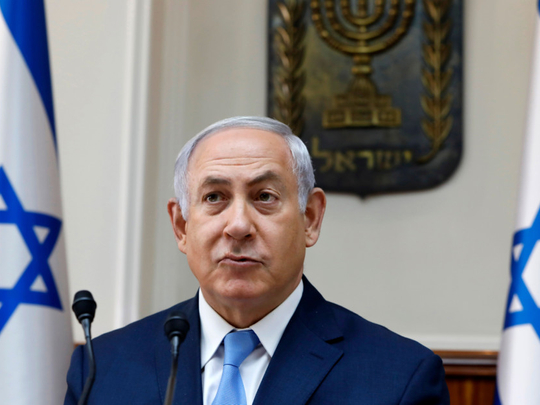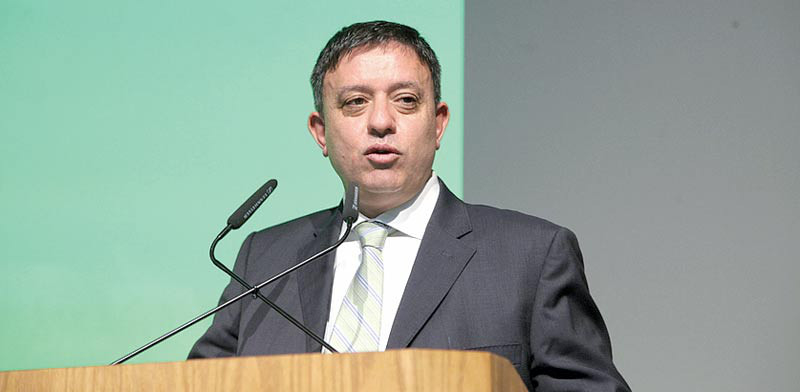
The Israeli-Jewish society agrees on the importance of ethnically nurturing the ‘Jewish spirit’, sought by the extremists to strengthen the culture of hate and the inferior view towards “the other”. Thus, it is not surprising to see how the fanatics link Jewish faith to Zionist nationalism, together with turning it into being hostile to “the other”, whoever it may be. While implementation of policies comes in different ways, we should not be unfair to any Israeli political party if we place most of them, ideologically, in one category of extreme rightists, including the Labour Party. This is despite the fact that the latter has always adopted, theoretically, policies that are shifting more towards liberal socialism, calling for a peaceful settlement with Palestinians and Arabs that can lead to an end to the conflict and establishment of two states.
Recent statements by the Labour Party leader Avi Gabbay, voicing support for the colonialist project, denying Palestinian rights and backing racist policies against Palestinians in the 1948 areas are no different from the policies of Israeli Prime Minister Benjamin Netanyahu, who leads the most extreme rightist government in the history of the Zionist state. The statements reveal that Labour has no substantial differences with the other Israeli rightest parties. Gabbay tends to speak about the so-called “peace camp” whose project and racism are enveloped in occupation and its policies of replacement/ethnic cleansing, in talking about “desired peace”.
Such policies are no different from those adopted by former Labour leaders such as Yitzhak Rabin, Shimon Peres and Ehud Barak who almost said the same thing and did more — presenting the party as a moderate socialist entity seeking peace, even as it stole the land, occupied it and practised killings. Today Gabbay repeats the same position as that of his predecessors: “Israel needs the army [to be] the most powerful, and we must always be aggressive and offensive ... this is the language they understand in the Middle East.” His words came a day after he declared: “I will not sit with the members of the Joint List (Palestinian Knesset members) in a government coalition.” Speaking in a fascist rightist-style, he added: “Above all, we have to know one thing, we are the strong here, and all the time they frighten us, but we are the strong here, we are stronger than the Arabs, we should not be afraid of them, but they should be afraid of us.” Later, in another statement, where he wanted to outbid the right-wing camp and restore, once again, the lustre of his party at the celebration of the 50th anniversary of colonisation in the Jordan Valley, he said: “The [colony] project represents the beautiful and loyal face of Zionism and Israel must maintain its control of the Jordan Valley within the framework of any peace agreement with the Palestinians.” Again, addressing the [colonists] in a rather enthusiastic tone, he said: “Over the years, the [colony] project has demonstrated the commitment, the determination and the love of the homeland, you [colonists] are the pioneers of Israeli generations. You are men working in the midst of hardships, realising the impossible and building the wilderness.” And here his words almost reflect Netanyahu’s position: “Israel has to keep the Jordan Valley that represents a strategic defensive belt to Israel, which it will not give up”. A few days ago, Gabbay had renewed his rejection of any eviction of [colonists] in any future deal with Palestinians. Moreover, he continued to attack the “Arab Joint List”, describing it as anti- Israel and “we must work to find a creative solution to maintain the [colonies] in the occupied lands.”
In the context of his new book, Ten Myths about Israel, Israeli historian and socialist activist Ilan Pappe wrote: “Israeli policymakers seem determined to keep the occupation alive as long as the Jewish state remains intact and cohesive. This is part of what the Israeli political regime considers as the current situation, which is always better than having any change. Israel will control most of Palestine, and since it will always include a large number of the Palestinian population, it can achieve this only by non-democratic means.” Chemi Shalev wrote in Israeli daily Haaretz, under the title ‘Definition of the most prominent ideas of the new right-wing in Israel’, saying that “the abusers and the instigators take the lead in the political arena and in social networks, and the entire Israeli Right is behind them. It is no exaggeration to say that the moderate rightists who wish to build bridges with other parties in the Israeli political spectrum were driven away from the arena and replaced by those who want to burn those bridges”. He went on to add: “Those can be called the new rightists,” and “their main characteristic is their contempt of democracy, pluralism, freedom of expression, the rule of law and the principle of equality in human rights and values. They love the extremist land of Israel and brand as self-hating Jews all leftist and secular Israelis and others who hold on to what remains of the ‘democratic Jewish state’ slogan.”
In fact, no fundamental differences exist between Gabbay and Netanyahu, not even with Naftali Bennett, leader of the rightist Jewish Home party, or with Avigdor Lieberman, leader of Yisrael Beiteinu party. They are the fanatic sons of Zionism in thought and practice. The difference between them relates only to the nature of the party, its size and place in the government.
Professor As’ad Abdul Rahman is the chairman of the Palestinian Encyclopaedia.










